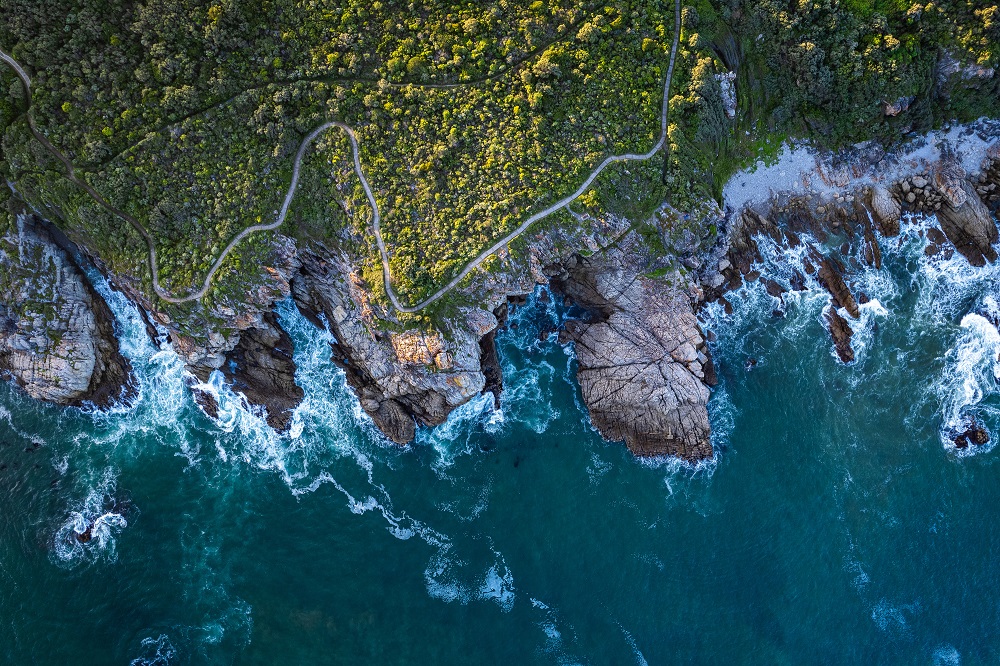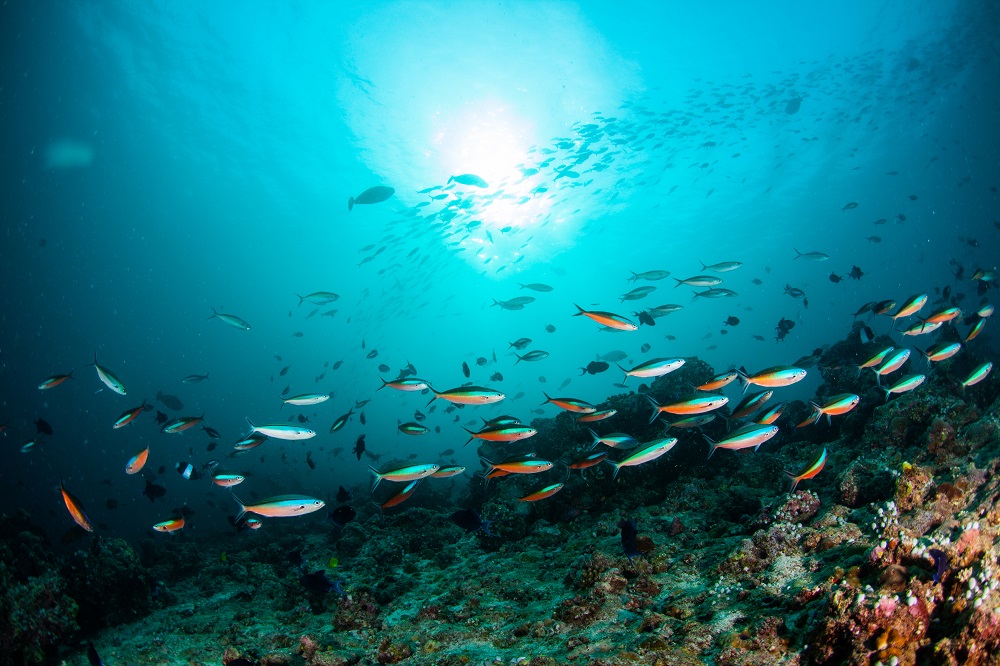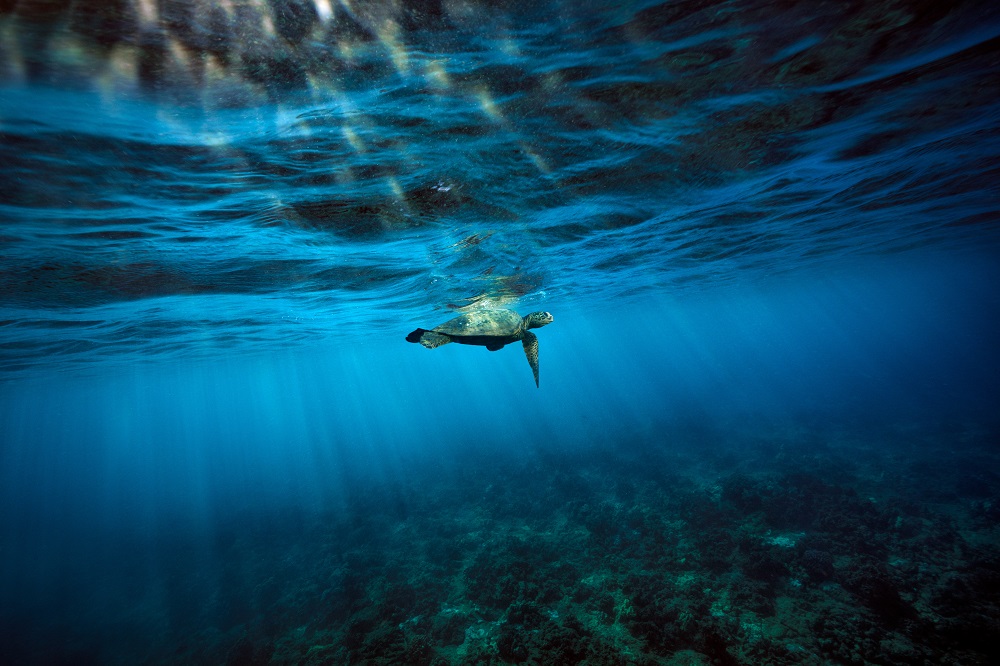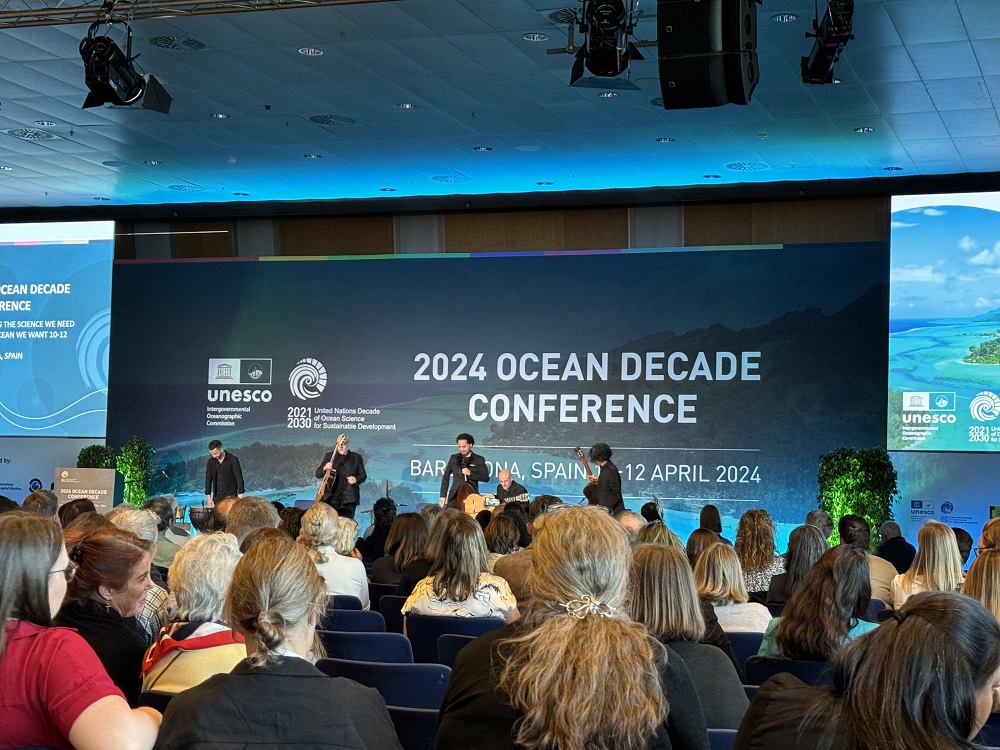Back to Blue, an initiative of Economist Impact and The Nippon Foundation, brings together two organisations that share a common understanding of the need for evidence-based approaches to improving ocean health.
Back to Blue is pleased to convene a high-level board of expert advisors to help us achieve our mission to address ocean pollution and improve ocean health.
The board will be co-chaired by Mitsuyuki Unno, Executive Director, The Nippon Foundation and Charles Goddard, Editorial Director of Global Initiatives, Economist Impact.
We are very grateful for the support of the inaugural board members:
- Ann Dierckx, Director of Sustainability, CEFIC (The European Chemical Industry Council)
- Naoko Ishii, Director, Centre for the Global Commons, University of Tokyo
- Pascal Lamy, President, Paris Peace Forum
- Kilaparti (Rama) Ramakrishna, Senior Advisor on Ocean and Climate Policy, Woods Hole Oceanographic Institute
- Vladimir Ryabinin, Executive Secretary, The Intergovernmental Oceanographic Commission of UNESCO, March 2015 – February 2024
- Elsie Sunderland, Professor of Environmental Science and Engineering, Harvard University
The advisory board is designed to provide guidance on the strategic direction and development of Back to Blue. This will include guidance on future priorities and, in particular, on how the work of the initiative can best develop programmes with impacts that are both actionable and measurable.
Back to Blue’s first year saw some notable achievements. The Plastic Management Index compared 25 countries at different stages of development in their management of plastics. The Invisible Wave raised the status of chemical pollution as a real priority for ocean health. We reached a global audience with a content programme of articles, films, podcasts and infographics and engaged directly with senior decision-makers in government, industry and the scientific community. We are confident that with the guidance of this expert advisory board Back to Blue will continue to deepen and strengthen our work towards a healthy ocean.
Advisory Board
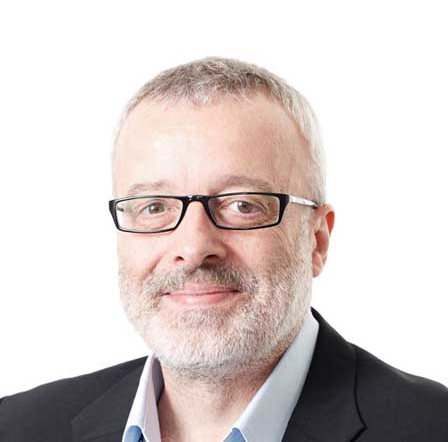
Charles Goddard, Editorial Director,
The Economist Group
Co-chair
Charles Goddard imagines and builds The Economist Group’s flagship initiatives. He works closely with partners on themes ranging from ageing and longevity to climate change, global health and the sustainable ocean economy. Based in Hong Kong, Charles was previously editorial director, Asia Pacific at the Economist Intelligence Unit and managing director of the Economist Corporate Network, a peer network for senior executives. He is executive director of the Group’s World Ocean Initiative.
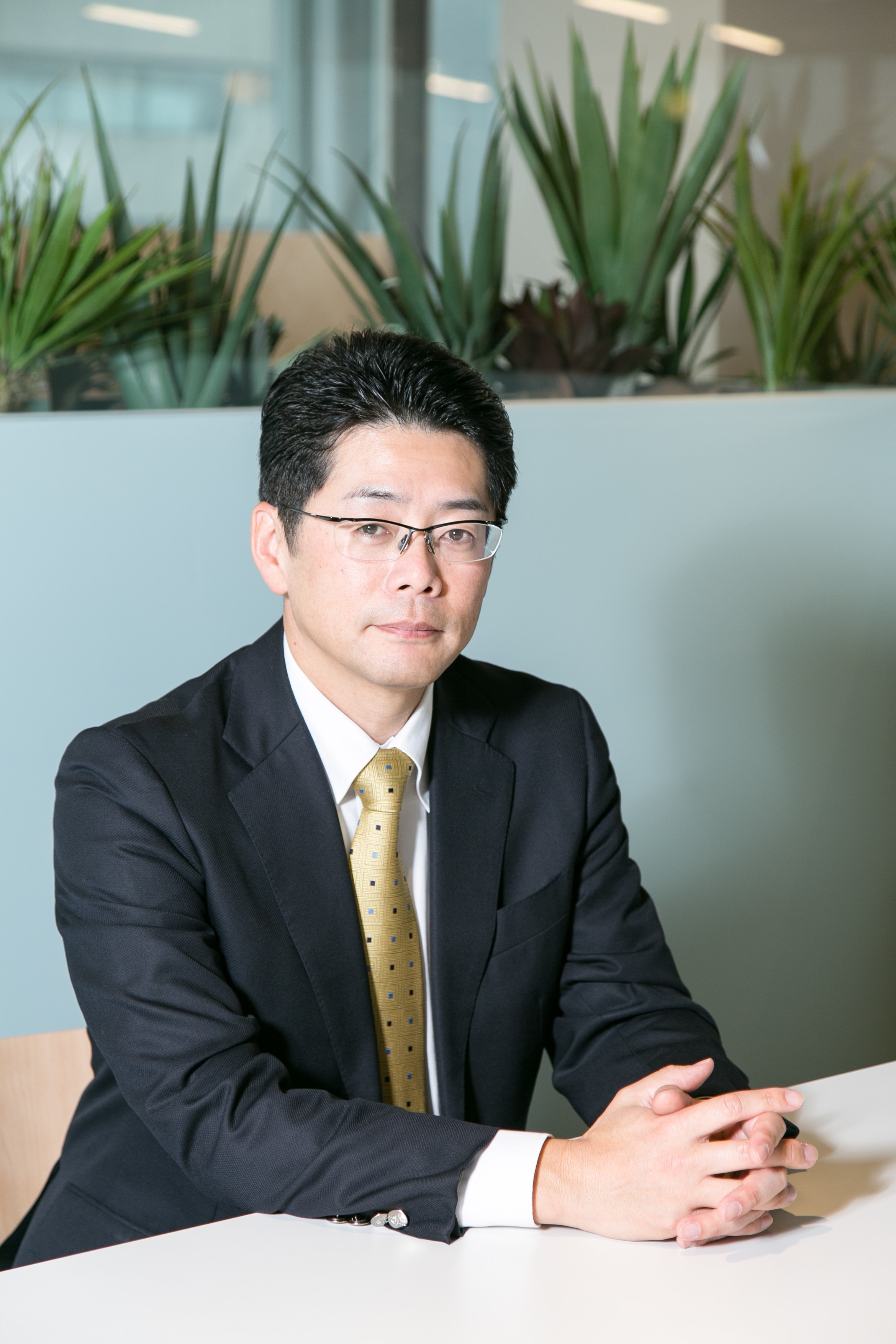
Mitsuyuki Unno, Executive Director,
The Nippon Foundation
Co-chair
Mr. Mitsuyuki Unno is the Executive Director of The Nippon Foundation, a nongovernmental organization based in Tokyo, Japan. Since its establishment in 1962, The Nippon Foundation has been working to develop human capacity and new technologies in the maritime and ocean field. The foundation works with various UN agencies, governments, and academic institutions around the world to address the complex global challenges facing our oceans today.
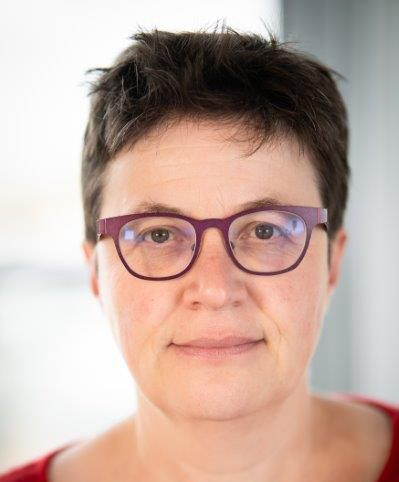
Ann Dierckx, Director of Sustainability, European Chemical Industry Council (Cefic)
Ann Dierckx graduated as an engineer in chemistry and agricultural sciences in 1990 at the Catholic University of Leuven. She holds a PhD in engineering in chemistry and agricultural sciences from the same university (1995). Prior to joining Cefic in 2008, she worked in the field of disposal of radioactive waste, first at the Belgian Nuclear Research Center in Mol, Belgium, later at the Belgian Agency for Radioactive Waste and Enriched Fissile Materials (NIRAS/ONDRAF) in Brussels where she held several coordinating positions.
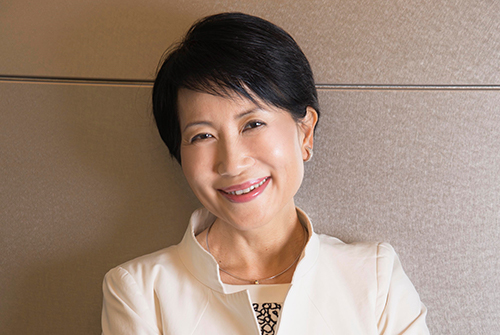
Naoko Ishii, Director, Centre for the Global Commons, University of Tokyo
Naoko Ishii is a professor and executive vice-president at the University of Tokyo, where she is also the inaugural director for the Centre for Global Commons, whose mission is to catalyse systems change so that humans can achieve sustainable development within planetary boundaries. Ms Ishii believes that academia can and should play an active role in mobilising movements towards shared goals of nurturing stewardship of the global commons. Before joining the university, she was chief executive officer and chairperson of the Global Environment Facility from 2012 to 2020.
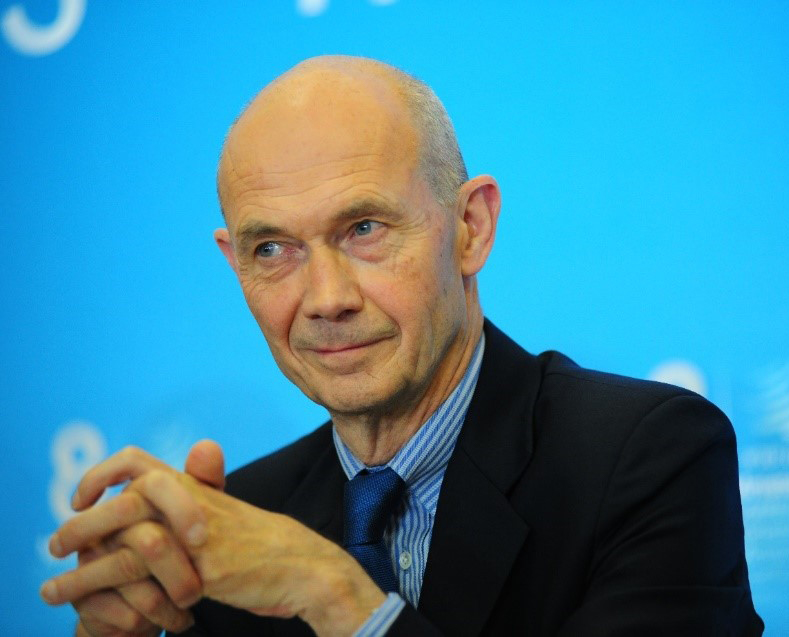
Pascal Lamy, Coordinator of the Jacques Delors Think Tanks (Paris, Berlin, Brussels), President of Paris Peace Forum, Former DG of WTO
Pascal Lamy is the President of the Paris Peace Forum and of the European branch of the Brunswick Group. He is also the Coordinator of the Jacques Delors Institutes (Paris, Berlin, Brussels). He is also President or member of various boards with a global, European or french vocation (European Starfish Mission (ocean), Mo Ibrahim Foundation, European Climate Foundation, IFPRI, PECC, CERRE, TMEA, Antarctica 2020, Transparency International, Alpbach Forum, Beijing Forum, World Trade Forum, WEF, Global Risks, Europaeum, Collegium international, Musiciens du Louvre, Institut Mendes-France, Colbert Foundation, etc.). He is an affiliated professor at the China Europe International Business School CEIBS (Shanghai) and at HEC (Paris).
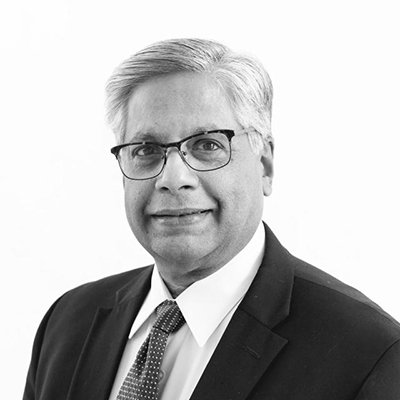
Kilaparti (Rama) Ramakrishna, Chair, Nippon Foundation-GEBCO Seabed 2030
Kilaparti Ramakrishna joined the Woods Hole Oceanographic Institution in October 2021 as senior advisor to the president and director on ocean and climate policy. Prior to this he worked with the United Nations as head of strategic planning at the Green Climate Fund; head of the Office for East and North-East Asia at the UN Economic and Social Commission for Asia and the Pacific; and as chief of cross-sectoral environmental issues and principal policy advisor at the UN Environment Programme. Mr Ramakrishna was also a lead author of the fifth assessment of the Intergovernmental Panel on Climate Change (IPCC).
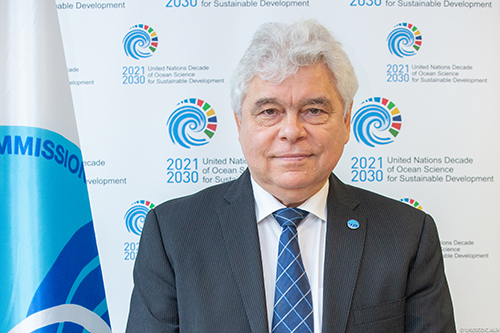
Vladimir Ryabinin, Executive secretary, IOC-UNESCO, March 2015 – February 2024
Vladimir Ryabinin was Executive Secretary of the Intergovernmental Oceanographic Commission (IOC) of UNESCO and Assistant Director-General of UNESCO between March 2015 and February 2024. His previous research was on numerical weather prediction, marine meteorological services, offshore engineering, ocean and climate science. His current focus is on enabling science for sustainable ocean planning and management.
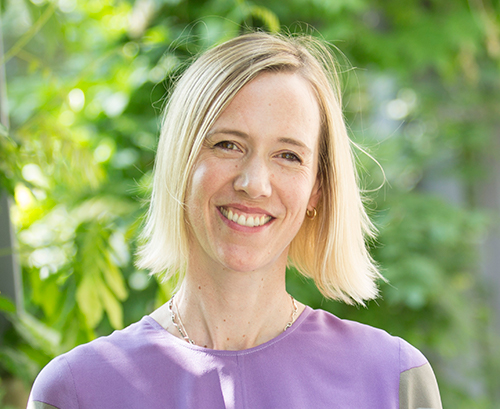
Elsie M. Sunderland, Professor of environmental science and engineering, Department of Environmental Health, Harvard T.H. Chan School of Public Health
Elsie Sunderland’s research group studies the biogeochemistry of global contaminants, conducting field studies and modelling to better characterise the cycling and fate of heavy metals and organic contaminants, and associated human exposures and risks. Her research includes developing models at a variety of scales, ranging from ecosystems to global applications, to help characterise the impacts of past and future changes in climate and environmental releases of contaminants on human and ecological health.

THE SUSTAINABILITY PROJECT
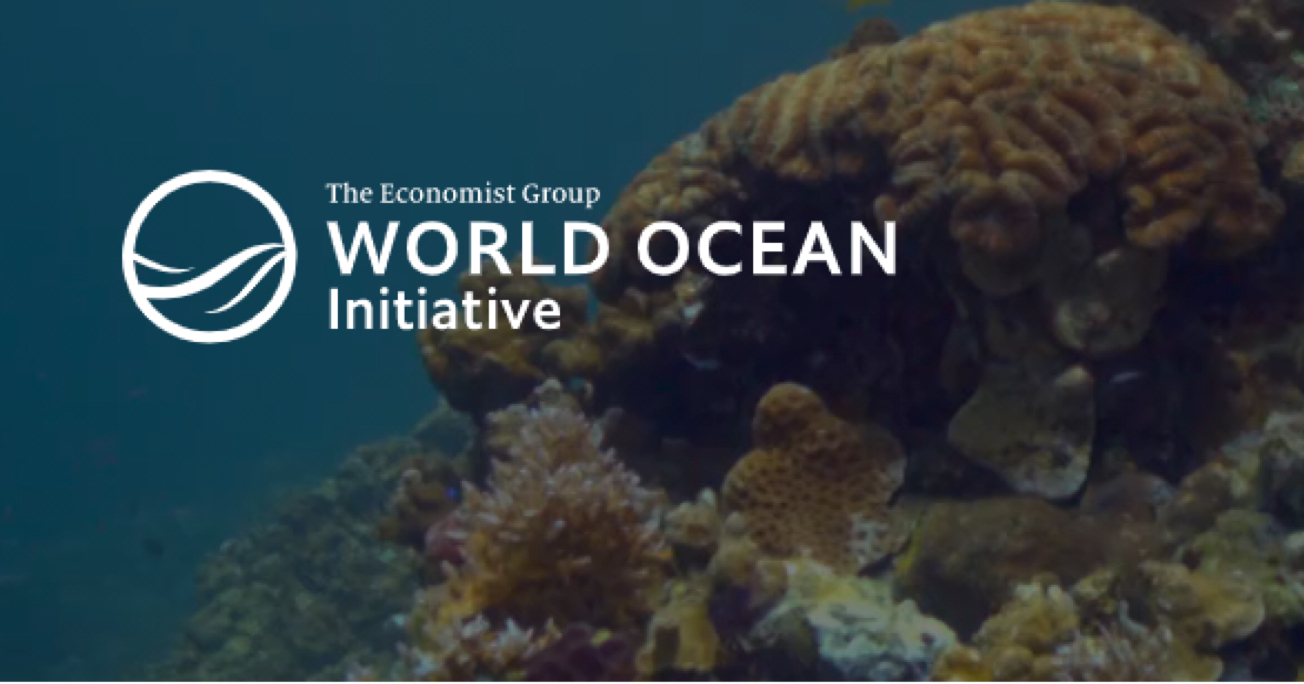
WORLD OCEAN INITIATIVE
WE WOULD LOVE TO HEAR FROM YOU
We welcome your feedback and comments.
If you have an editorial or media related request, a member of the media team will get back to you.
Back to Blue is an initiative of Economist Impact and The Nippon Foundation
Back to Blue explores evidence-based approaches and solutions to the pressing issues faced by the ocean, to restoring ocean health and promoting sustainability. Sign up to our monthly Back to Blue newsletter to keep updated with the latest news, research and events from Back to Blue and Economist Impact.
The Economist Group is a global organisation and operates a strict privacy policy around the world.
Please see our privacy policy here.
THANK YOU
Thank you for your interest in Back to Blue, please feel free to explore our content.
CONTACT THE BACK TO BLUE TEAM
If you would like to co-design the Back to Blue roadmap or have feedback on content, events, editorial or media-related feedback, please fill out the form below. Thank you.
The Economist Group is a global organisation and operates a strict privacy policy around the world.
Please see our privacy policy here.




 The scourge of untreated wastewater
The scourge of untreated wastewater Slowing
the chemical tide: safeguarding human and ocean health amid
chemical pollution
Slowing
the chemical tide: safeguarding human and ocean health amid
chemical pollution Hazardous chemicals in plastics - the discussions at INC
Hazardous chemicals in plastics - the discussions at INC







